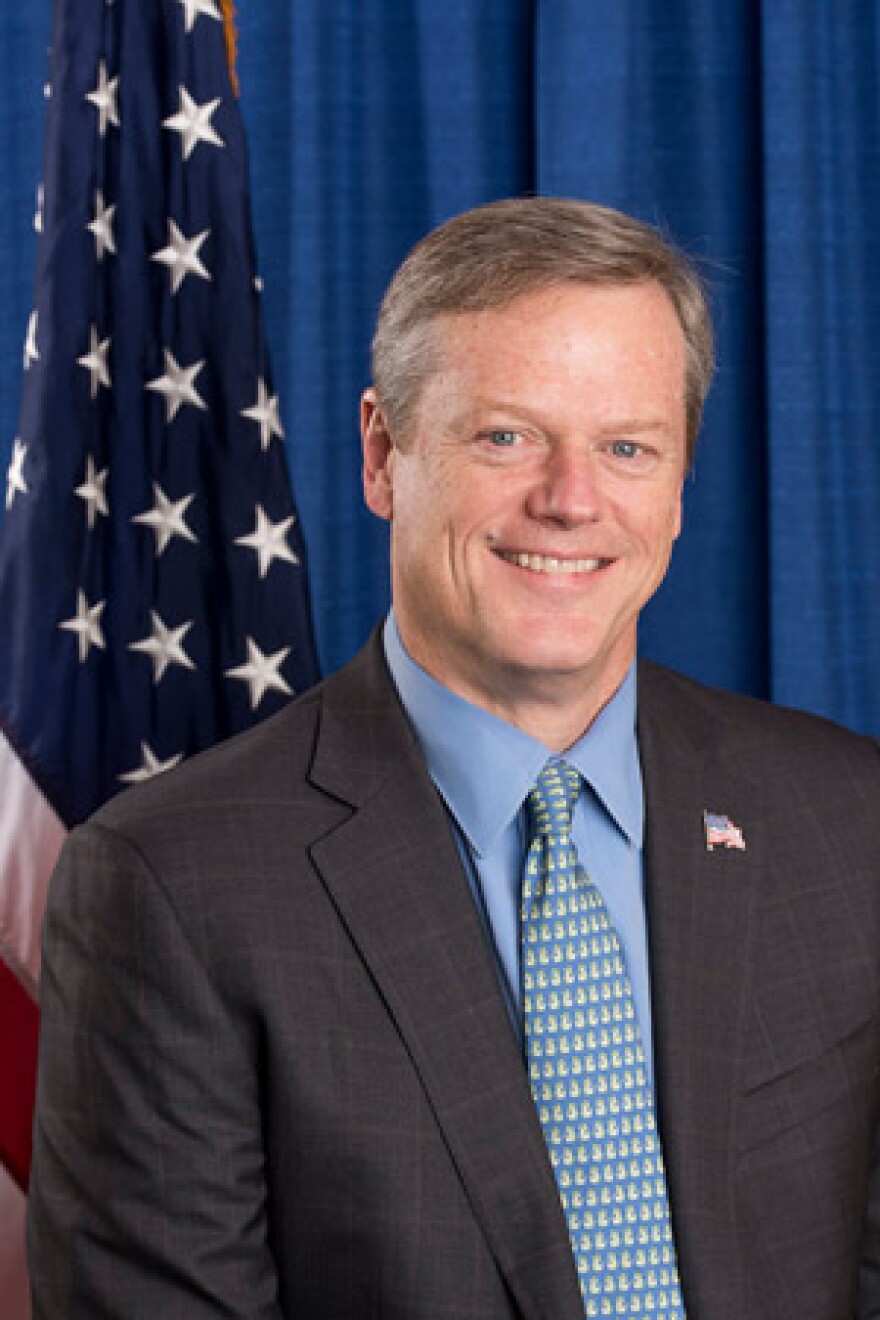Massachusetts Governor Charlie Baker outlined his budget this afternoon, focusing on education and combating opioid abuse while seeking to close a state deficit.Marking a 3.5 percent increase over the fiscal 2016 budget, Baker’s $39.6 billion plan includes a $72 million increase in Chapter 70 K through 12 education funding while also supporting the Republican’s desire to expand the charter school cap.
“This budget backs up our commitment with a significant financial one,” Baker said. “We’ve dedicated over $100 million to fund charter school contributions to local school districts that have charter schools. That’s an increase of $20.5 million over fiscal ’16. In fiscal ’17 under our proposal all districts whose charter school tuitions payments are higher than they were in fiscal ’16 will receive a 100 percent reimbursement for that increase.”
Baker says the charter school funding formula is an attempt by the administration to acknowledge it is a debate that needs to be had with the legislature. Democratic Representative Smitty Pignatelli of Lenox, who sits on the Legislature’s Joint Committee on Ways and Means, says at the end of the day it comes down to financing.
“The financing impact on local schools is really negative,” Pignatelli said. “If we could fix the financing so that a losing school district of a child going to a charter school is not a big hit financially to that community or school district I think there’s some wiggle room where we can accommodate these things. But, the current law is not good. It’s cost negative to the communities and school districts.”
Governor Baker is proposing to increase funding for the Department of Children and Families by $30 million, allowing for more than 280 new hires to get the social worker caseload ratio down to 18 to 1. If included, some 600 staff will have been added to DCF since Baker came into office in January 2015.
During his first State of the Commonwealth address last week, the governor said one of his top priorities was combating opioid abuse. All told, he says $140 million invested in the Department of Public Health will support prevention, treatment and recovery services.
“The budget also funds 2,150 adult residential recovery opioid treatment beds, which is 150 more beds than were funded in fiscal ’16,” Baker said. “We’ve also added $1.4 million through a variety of grants to local communities, the Attorney General, district attorneys and state police to battle drug dealing and go after traffickers in some of our major communities here in the commonwealth.”
Baker says the investments, including a 4.3 percent increase in local aid, can be completed without raising taxes or fees. The plan closes a $635 million deficit while reducing the use of nonrecurring revenue in a multi-year effort to shrink a structural deficit, according to Secretary of Administration and Finance Kristen Lepore. She says the budget relies on MassHealth savings, capital gains taxes and surplus land sales. MassHealth spending, which accounts for a third of the budget, would increase 5 percent. But, the Massachusetts Taxpayers Foundation says the fiscal 2017 budget deficit could reach $900 million, according to President Eileen McAnneny.
“Spending has outpaced revenue.” McAnneny said. “Our revenue growth has been healthy, about $1.1 billion year over year, but some needs and programs – particularly MassHealth – that growth is outpacing revenue growth.”
The Massachusetts Democratic Party called the governor’s proposal a barebones budget that does little to nothing to address income inequality or transportation infrastructure. The fiscal year starts July 1.





